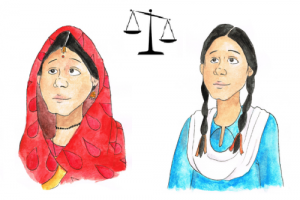Judicial System and Courts
Using Machine Learning to Promote Fairness and Efficiency in Indian Courts
Biased or slow rulings from judges have serious economic and welfare consequences, including a harmful environment for business. Courts in developing countries face numerous challenges in providing fair and efficient justice to citizens and firms. The challenges include: legal codes…
Judicial independence in Pakistan
Focus of the study Judicial independence from state bureaucracies is considered critical for the stability of institutions and for ensuring the rule of law. As such, judicial independence is crucially important for understanding the development process. Our primary aim in…
Child marriage law, gender norms and marriage customs (Bangladesh)
Focus of the study Our key research question is: Do laws regarding child marriage (marriage below the age of 18) influence social attitudes and marriage practices when the state has limited enforcement capacity? This study investigates the effects of child…
Access to Justice in Kenya’s Magistrates’ Courts
Access to Justice in Kenya’s Magistrates’ Courts: Judicial Decisions as Public Goods Issue: Inefficiencies and lack of accountability in Kenya’s over-burdened and under-resourced magistrates’ courts result in wide disparities in the quality and application of justice. In 2016, for example,…
Institutional Reform and de facto Women’s Rights
Issue: In many socially-conservative settings, legal protections and provisions have frequently outpaced how administrators enforce these rules. In Pakistan, for example, government officials often use their own judgement and respond to local concerns when carrying out functions critical to women’s rights, including…
Improving the Effectiveness of Labor Courts through Information and Conciliation
Issue: Mexican law requires that labor disputes should be adjudicated within three months, but, in practice, the country’s labor courts have several years of backlogged cases. This dysfunctionality creates uncertainty for workers and businesses, limits access to justice, and is…





